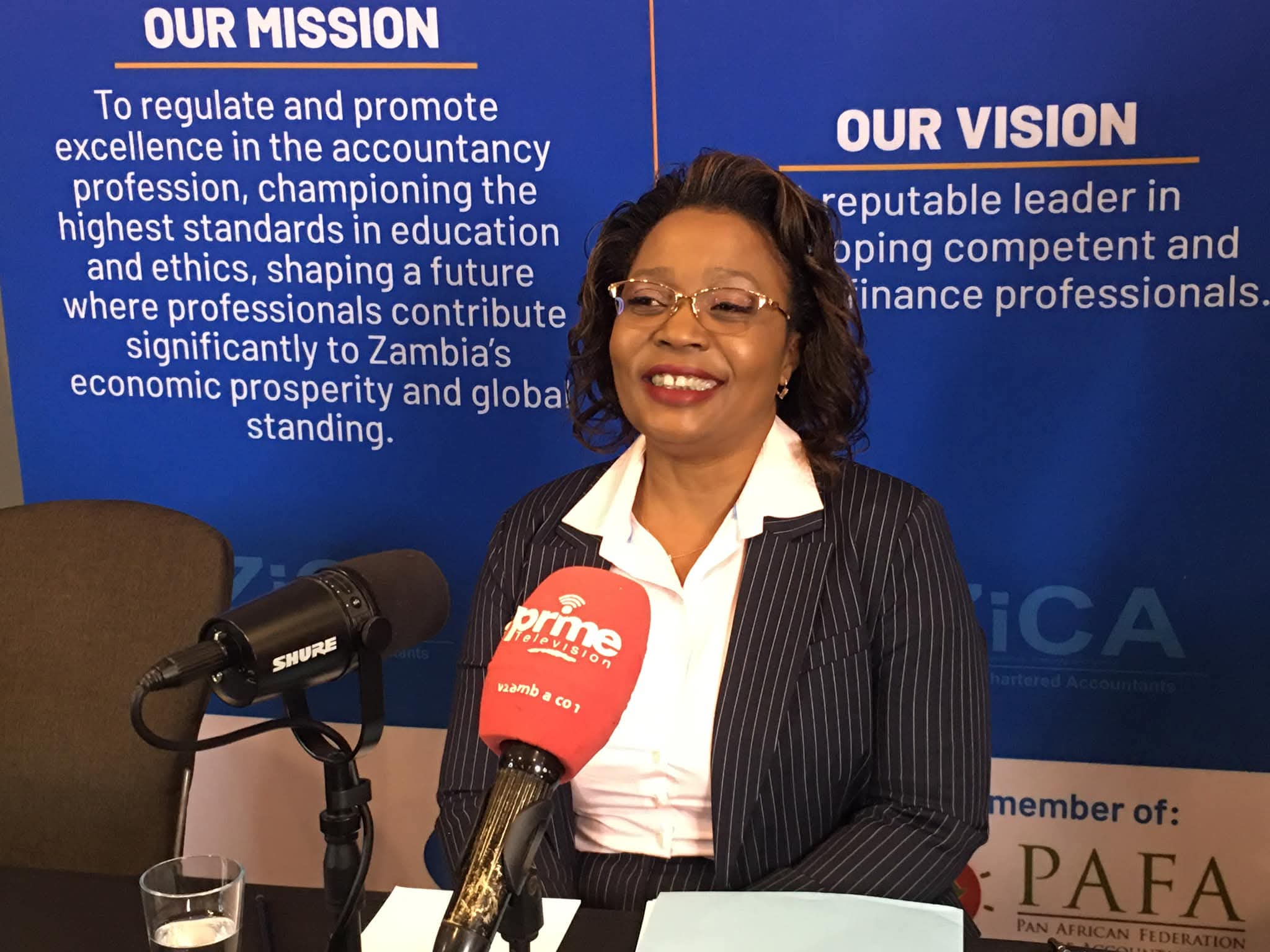Debt, Taxes, Trouble
 ZICA raises concern over unhedged forex borrowing, VAT inefficiencies, and new tax burdens.
ZICA raises concern over unhedged forex borrowing, VAT inefficiencies, and new tax burdens.By Francis Maingaila
Lusaka, Zambia24 - (25-07-2025) – The Zambia Institute of Chartered Accountants (ZICA) President, Yande Siame Mwenye, has issued a wide-ranging and strongly worded assessment of Zambia’s economic and fiscal management, tax policy, and legal reforms, warning that several recent government decisions could undermine macroeconomic stability, investor confidence, and long-term growth.
In a detailed quarterly media briefing held in Lusaka, Mwenye welcomed the improvement in Zambia’s inflation and exchange rate performance during the second quarter of 2025 but cautioned against premature optimism.
“This is not the time to celebrate,” she said, urging the government to prioritise structural reforms in energy, agriculture, tax policy, and governance to consolidate recovery and achieve sustainable growth.
Macroeconomic Outlook Conditional on Energy Reforms
Mwenye acknowledged the appreciation of the kwacha from K28.12/USD in April to K24.30/USD in June 2025 and a drop in annual inflation to 14.1%, attributing this to seasonal forex inflows, debt restructuring, improved food supply, and falling oil prices.
However, she warned that projected GDP growth—pegged at 6.4% in 2026 and 6.5% in 2027—is heavily reliant on mining and therefore vulnerable to Zambia’s deepening energy crisis.
“If we do not resolve the power deficit that surpassed 1,000MW during the 2024 drought, growth assumptions will collapse,” she said.
“Failure to reform the energy sector will directly constrain mining output, resulting in missed copper targets and reduced government revenue.”
Tax Revenue Plan Lacks Execution on VAT and Informal Sector
ZICA praised the 2026–2028 Medium Term Budget Plan (MTBP) for its alignment with Vision 2030 and the IMF programme, but sharply criticised its failure to address longstanding inefficiencies in VAT administration and informal sector taxation.
“The failure to resolve VAT refund arrears is a serious blow to business liquidity and investor confidence,” Mwenye said, calling for a protected VAT refund budget line, timely disbursements with interest on delays, and publication of monthly arrears data.
She also demanded clear legislation to broaden the tax base, better governance of tax incentives, and digitisation of property tax and revenue systems.
Smart Invoice Rollout Welcomed, Withholding VAT Suspended
Mwenye welcomed the Zambia Revenue Authority’s (ZRA) decision to suspend the Withholding VAT mechanism starting August 1, citing the success of the Smart Invoice system.
She said the move will ease liquidity challenges, reduce administrative burdens, and accelerate refund processing—particularly for MSMEs.
“This is a win for transparency and for the private sector,” she said.
Borrowing Plan Poses New Fiscal and Currency Risks
In a critical review of the Amended 2025 Annual Borrowing Plan, ZICA expressed concern over government plans to double net domestic financing from K15.4 billion to K30.2 billion and to borrow over K10.8 billion in USD-denominated loans from local banks.
“This reintroduces the exact foreign currency risks that led to Zambia’s 2020 default,” Mwenye warned.
“Borrowing in dollars locally is a dangerous precedent, especially when classified as domestic debt. If the kwacha depreciates, it will balloon the debt service burden.”
ZICA fears the borrowing plan could crowd out private investment, fuel inflation, raise interest rates, and undermine the Bank of Zambia’s monetary tightening.
The Institute called for legal reforms to prohibit unhedged forex borrowing and demanded improved coordination between fiscal and monetary authorities.
Criticism of Income Tax Amendment Bill
ZICA also criticised the Income Tax Amendment Bill No. 9 of 2025, particularly the proposed increase in withholding tax on government securities from 15% to 20% and the introduction of a Minimum Alternative Tax (MAT) of 1% of turnover.
“These changes could reduce investment returns, deter foreign investors, and increase borrowing costs for government,” Mwenye said.
She urged phased implementation, stakeholder consultation, and exemptions for vulnerable sectors and SMEs.
“We must avoid unintended consequences that undermine business viability and fiscal goals.”
Grave Concerns Over Lands & Deeds Registry Bill
In a strongly worded statement, ZICA opposed the proposed amendment to the Lands and Deeds Registry Bill, which gives the Chief Registrar powers to cancel land titles without a court order.
“This introduces unacceptable legal uncertainty,” Mwenye said.
“It will erode investor confidence, reduce property values, and weaken access to credit by making land a less reliable form of collateral.”
ZICA has called on government to withdraw the bill and consult stakeholders including banks, legal associations, and the private sector before proceeding.
ZICA Calls for Fiscal Prudence and Transparency
Across all policy areas, Mwenye urged the government to uphold transparency, rule of law, and fiscal discipline.
“Without strong governance, even the best policies will fail,” she said.
She concluded by reaffirming ZICA’s commitment to advising government on economic policy and to safeguarding the public interest through professional integrity, economic advocacy, and institutional accountability.



Comments
Post a Comment